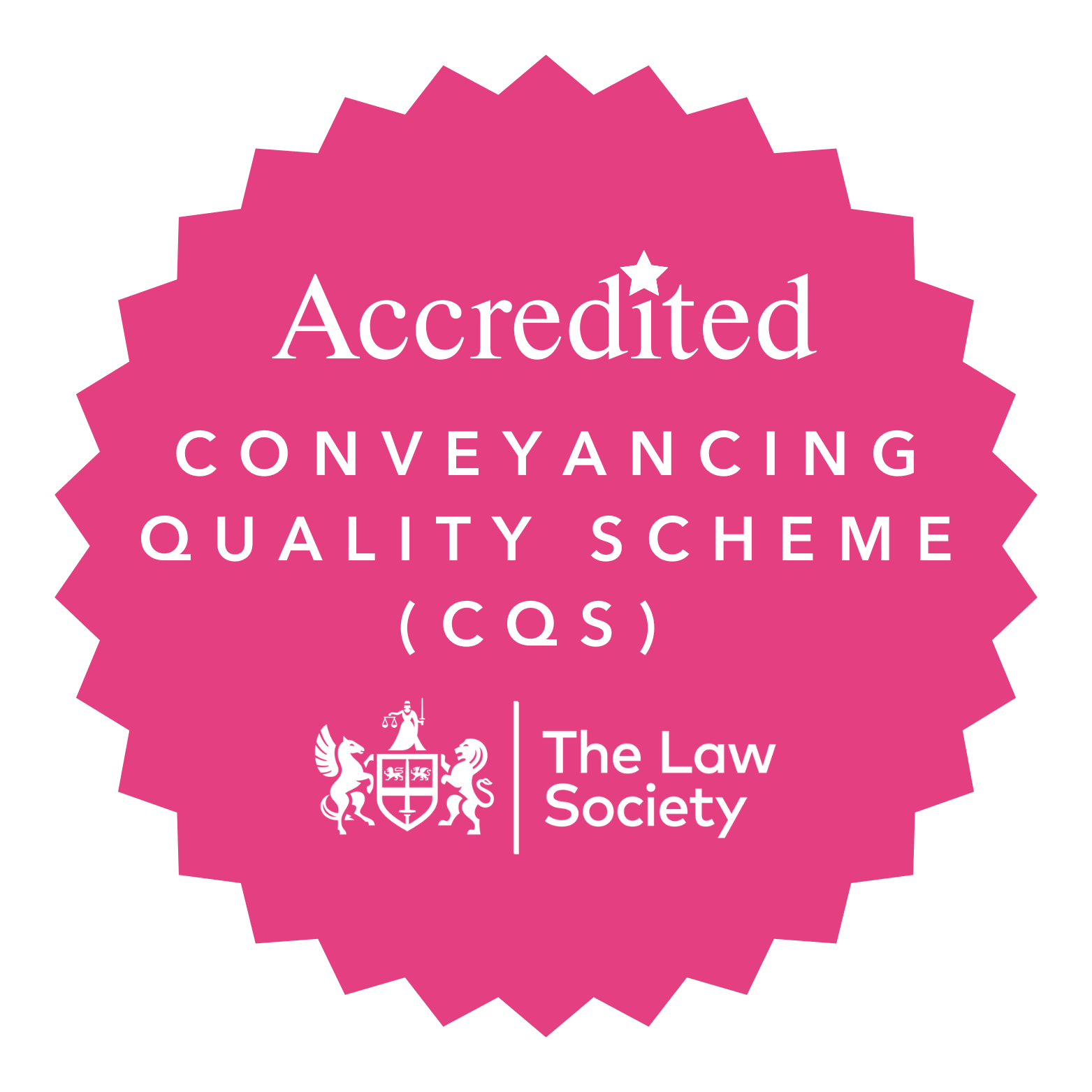Whatever the circumstances, separating from a person you were once close to can be miserable. However, with our team of dedicated divorce and separation lawyers, we can provide practical support and advice to help you through this challenging time.
Pickerings divorce & separation solicitors know that one size does not fit all. We tailor our approach to suit your circumstances. With a team of experienced family lawyers, we ensure that you are matched with the most appropriate lawyer to guide you through the process.
We help individuals with all manner of family issues.
Rather than sit worrying, why not take advantage of our free 30-minute, initial, no-obligation divorce consultation. Call us in confidence on 01827 317070 or email sdavies@pickerings-solicitors.com to arrange an appointment.
In addition to the traditional divorce, we can also offer the Collaborative approach. What really matters to us is that you get the service that you need to sort things out in the best way possible.
We can advise you on the legal implications of relationship breakdown including divorce and separation. We can guide you through the process and deal with associated issues along the way, including financial matters and arrangements for your children.
We have children law specialists here who work with our divorce team to put arrangements in place for the future of the family.
Our highly skilled team is regularly instructed by individuals with complex financial arrangements, international connections and difficult emotional contexts who value our practical, sensitive and bespoke approach.
How can we help you to divorce?
- Advise on the financial consequences of separation
- Explain the basis and process for divorce
- Prepare and deal with divorce proceedings on your behalf
- Advise on Separation Agreements
- Advise and conduct nullity proceedings
- Deal with international and jurisdictional issues within divorce.
- Prepare & advise on Cohabitation and Pre-Nuptial Agreements and Post-Nuptial Agreements
- Conduct Financial remedy claims through the courts
Business owners, entrepreneurs and high net worth individuals, regularly instruct our team to deal with their often complex financial arrangements following relationship breakdown. We work closely with accountants, tax advisors, surveyors, pension specialists and barristers to achieve bespoke financial settlements that maximise your financial resources.
We can advise and guide you through the process and provide efficient, practical advice along the way. We advise on a wide range of issues including:
- General financial principles on divorce
- Division of business assets on divorce
- Financial provision for children
- Maintenance claims
- Lump sum awards
- Property claims
- Pension sharing
- Treatment of family trusts on divorce
- Emergency and interim financial claims
Speak to Pickerings Divorce Solicitors in confidence on 01827 317070 or email sdavies@pickerings-solicitors.com to arrange an appointment and take advantage of our free 30-minute, initial, no-obligation divorce consultation.
Can I get a divorce?
You can get a divorce as long as you have been married for over 12 months, the marriage is valid under UK law and you meet rules about how long you have been living in the country.
What is 'no fault divorce?'
Provided you meet the criteria shown above you can apply for what is known as a no-fault divorce.
As of April 6, 2022, thanks to the Divorce, Dissolution, and Separation Act 2020 in England and Wales, the process of getting a divorce or ending a civil partnership has become simpler for couples who are splitting up. This now eliminates the need for either party to assign blame in order to establish the marriage's breakdown.
Book an initial 30-minute, no-obligation divorce consultation with an expert divorce lawyer at Pickerings Solicitors.
Is it possible to separate formally rather than getting a divorce?
Yes, a separation agreement can be made. The agreement will set out what happens to all the matrimonial assets such as your home and any savings or investments and includes pension funds and life insurance policies. Your partner would have to agree to this and there are some restrictions on what can be dealt with in a separation agreement.
Seek legal advice to see how you might be able to get a separation agreement and whether this is right for you.
Do I need a lawyer to get divorced?
Whether you should hire a divorce lawyer depends on your unique situation and individual circumstances.
Even with a no-fault divorce, if your divorce involves complex financial matters or children, it is a good idea to consult a lawyer. If you and your partner have significant assets together, own a business, have international ties, have dealt with bankruptcy, or need financial support from your partner after the divorce, having a lawyer guide you through the complexities and negotiations is advisable for securing your future.
Does my partner need a different lawyer or can we both use the same one?
As your lawyer, we cannot also advise your partner as this would be a conflict of interest. Your partner can consult their own independent lawyer if they choose to but it is not a requirement.
How long does it take to get a divorce?
The length of time depends on many factors including time taken for your partner's lawyer to respond. It can take between 7-9 months from the beginning of divorce proceedings to get a final divorce order. We can advise you at every stage of the process.
How much will a divorce cost?
Each divorce is different, some are more complex than others and so they require more time. The cost depends on what stage of the divorce you are at and whether you are starting the divorce or just responding to a divorce application. We can discuss this with you at your initial free 30-minute, initial, no-obligation divorce consultation.
How do I fund my divorce? Is legal aid available?
You may get funding from any existing assets or loans from the bank (may be secured against an asset in which you have interest). Litigation loans may be available in certain circumstances.
Pickerings Solicitors do not offer legal aid for divorce. Legal Aid is no longer available unless you are in a circumstance of domestic abuse and you are financially eligible.
Can I get my partner to fund my divorce?
In certain circumstances where other funding options are not available to you, you may be able to apply to the court for a Legal Services Payment Order. We will be able to advise you of your eligibility.
What is the difference between the sole applicant, joint applicant and respondent?
When a marriage ends in the UK, individuals can file for divorce. "Sole applicant" and "joint applicant" describe those initiating legal proceedings, while "respondent" refers to the one who responds. A "joint application" doesn't have a respondent. Instead, it has two applicants, known as Applicant 1 and Applicant 2, who jointly oversee and advance the proceedings, sharing responsibility.
The court assesses whether the requested costs are reasonable and considers the behaviour of both parties during the divorce process.
If the court orders costs, the other person must pay by law. If they don't, enforcement may be needed.
Is it possible to separate formally rather than getting a divorce?
Yes, a separation agreement can be made. The agreement will set out what happens to all the matrimonial assets such as your home and any savings or investments and includes pension funds and life insurance policies. Your partner would have to agree to this and there are some restrictions on what can be dealt with in a separation agreement.
Seek legal advice to see how you might be able to get a separation agreement and whether this is suitable in your particular circumstances.
What is a Final Divorce Order?
A final divorce order marks the formal end of a marriage. If your partner dies after getting a final divorce order but before you have a financial settlement, then you will no longer be considered as a widow/widower. As a result, you could lose some benefits such as a widow’s/widower’s state pension benefits. It is important to discuss your particular circumstances with your lawyer in order to ascertain the most appropriate time to apply for the final order.
What if I want to contest the divorce?
Due to changes in divorce law it is no longer possible to contest a divorce. However, if you are concerned about your financial position after a divorce then our lawyers can advice you.
What if my partner won’t respond to the divorce?
It is possible to proceed with a divorce even if your partner does not respond to it. We can provide expert advice on how to move forward.
What if my partner goes bankrupt during divorce proceedings?
Claims and awards remain even if one party has gone bankrupt but there can be implications for the other party. Seek legal advice as soon as possible for advice on how to continue.
Can I make a claim against my partner’s pension?
A pension can be viewed as a marital asset. Seek advice from our divorce team who can explain what you may or may not be able to claim from your partner in a divorce.
Do I have to wait until I am divorced to make my will or can I just amend my existing will?
We would advise that you consider the content of your will as soon as possible when considering separation or divorce. Our Wills and Probate team can give expert advice on creating and amending your will.
If our property is in my partners name, do I still have a right over it when we divorce?
All the matrimonial assets are considered regardless of the name they are in. It is important to take advice. As you may need to urgently protect your interest in the property if it is not in your sole name or owned jointly with your partner.
My partner wants me to sign a post-nuptial agreement. What does this involve and how can you help?
A post-nuptial agreement can address what is to happen to your income, property, pensions and other assets in the event of divorce. You need to enter into a post-nuptial agreement of your own free will, without pressure from your partner. You must also have a full appreciation of the implications of signing a post-nup and have full details of your partner's financial circumstances. The agreement must be 'fair' to you both. A post-nuptial agreement is not automatically legally binding in the event of a divorce, but the court will attach weight to the presence of such an agreement. The court has the power to make whatever order it feels reasonable in the circumstances of the case but the existence of a post-nup can be influential.
Do we need a lawyer if we can come to a financial agreement between ourselves?
We would advise that you gain legal advice due to the complexity of this area of the law.
You can reach an agreement yourselves or with the assistance of a mediator. It is advisable to take legal advice to make sure your 'agreement' is fair to you. We are able to draw up the appropriate documentation confirming the terms of the agreement and ensure it is legally binding on you both.
Any financial agreement you reach should still be approved by the court to make sure it is legally binding. In some cases, when parties are not represented by a lawyer, the judge may refuse to make the agreement legally binding if he or she does not believe the parties are fully aware of the implications of signing up to such an agreement or if the judge does not believe the agreement to be fair in all the circumstances.
Can my partner claim my inheritance after divorce?
It is possible to exclude inheritance money received during the marriage from your financial settlement agreement by using a post-nuptial agreement. This also applies to property or other assets if they are expressly incorporated into a post-nuptial agreement.
Contact our team on 01827 317070 or email: sdavies@pickerings-solicitors.com for more information.



